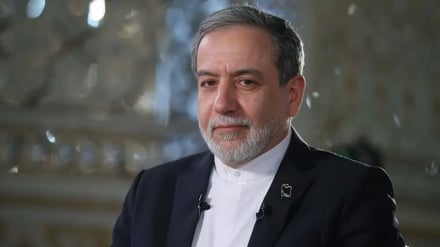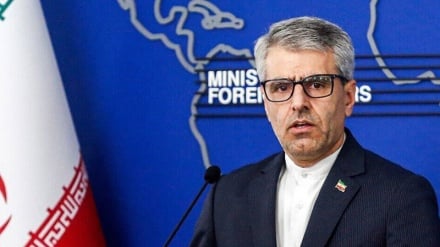Yemen, the 5th year of fire and blood (2)
The Saudi Coalition war against Yemen entered its fifth year on March 26, 2019. What took place during the 4 years of the Saudi-led war were the most heinous war crimes. In the previous program we briefly reviewed the genocide unleashed by the Saudi regime and its comrades-in-crime against Yemen during the past four years.
This time we will talk about the inhumane dimensions of the Saudi crimes against Yemen and the reaction of international organs and human rights advocates against the crimes committed by the regime in Riyadh and its accomplices in the region and the world.
The Saudi coalition war against Yemen created not merely human tragedies including killing, injury, homelessness, famine and outbreak of diseases; it had other consequences including obliteration of livestock and infrastructures.
According to international organs, over 600,000 Yemenis have lost their jobs during the past four years. This comes as most of Yemeni people are engaged in agriculture and this sector has been destroyed. Hundreds of thousands of families are facing psychological crisis due to the killing of head of the family or one of their family members. This will have chronic repercussions for Yemenis.
In terms of infrastructure, over 1800 schools in various parts of Yemen have been demolished. As a result of destruction of schools or homelessness of people, over 2 million children have no access to school and education.
According to a report by the Legal Center of Rights and Development, 15 airports, 2,661 roads and bridges, 1,824 government organs, 14 ports, 193 power plants and generators, 434 communication networks, 341 health centers and hospitals, 945 mosques and 424,654 houses of Yemeni people have been destroyed or damaged as a result of the assaults of the criminal forces of the Saudi regime and accomplices.
Over half of Yemen's health centers have been shut down or limited their activities. Nearly 20% of regions lack any doctor because most doctors have left the country or they do not come to hospitals due to insecurity and fear of death.
These crimes were repeated even on March 26, 2019 when the Yemeni war entered the fifth year. Just on March 26, 26 air strikes were carried out, in which 8 civilians were killed and 7 others were injured, and 11 houses and one hospital were damaged. The bombers of the coalition, by bombing a hospital in Sa'da province, killed at least 8 people 5 of whom were children including an 8-year old, 2 ten-year-old, a 12-year-old and a 14-year-old. 8 people were also injured. The UN Resident Coordinator in Yemen, Lise Grande, condemning air raids on hospitals and medical centers, called for preventing the Saudi invasion on Yemeni hospitals and medical centers but there is no global will to stop the Saudi crimes against Yemen.
International bodies such as the Security Council, despite numerous war crimes against Yemeni civilians, stayed insouciant and refused to take action to stop this war and support the Yemeni people. Nonetheless, independent human rights bodies have drawn the attention of the world public opinion to the Saudi coalition crimes against the Yemeni people.
The Saudi coalition fighters, on August 9, 2018 targeted a school bus in Sa'da province martyring 50 people and injuring 79 others most of whom were children and students under 13. They were on a trip for a summer period in Dahyan city. The crime led to the release of several international reports on the Saudi coalition crimes against Yemen. The Children's Rescue Institution called the war on Yemen a "war on children". The Amnesty International, by releasing several reports on the Saudi coalition crimes in Yemen, called for the arms sanctions of the Saudi coalition members. Human Rights Watch has repeatedly released reports denoting that Saudi and the UAE regimes have committed war crimes in Yemen.
One of the bitter incidents in the Yemeni crisis is that human rights advocates have either directly supported the war or voiced their support through passivity against these crimes. The US daily New York Times, on May 3, 2018, exposed the stealthy collaboration of the US Special Forces known as green berets on Saudi border with Yemen. The report said "A group of green beret troops have been deployed on the Saudi border with Yemen to help identify and destroy the Houthi missiles in Yemen." The newspaper, confirming the West's increased support for the Saudi coalition against Yemen, pointed to the meeting of the American Senators with Pentagon officials and quoted the head of the US Central Command Joseph Votel as saying: "We are allowed to help the Saudis to defend their borders. We do this by sharing information and through logistics support as well as advising them."
Meanwhile, the US Senate and House of Representatives in March 2019 explicitly confessed the country's support for the Saudi coalition in their crimes against Yemen. Then the US Senate called for a halt of military support for the Saudi coalition in war on Yemen by 54 vs. 46 votes. In the meantime, the House of Representatives with 435 seats endorsed a resolution on ending support for the Saudi coalition with the positive votes of 248 MPs, but the US president Donald Trump vetoed the resolution to continue support for the Saudi coalition in its genocide of Yemeni people and devastation of the country.
Although some of the western governments have officially condemned the Saudi crimes against Yemen and announced that they will stop export of arms to the regime in Riyadh, in practice they took no action to stop the war against Yemen and have hindered any probe into the Saudi and UAE crimes in Yemen. This has proved once more that the so-called human rights advocates have selective glance at human rights and, wherever their interests require, they sacrifice human rights. The minimal pressures brought by the European countries and the US congress in recent months on the Saudi regime stemmed from a crime committed by the Saudi crown prince Mohammed bin Salman against Jamal Khashoggi, the Saudi journalist at the Turkish Consulate in Istanbul, who was gruesomely murdered and mutilated.
Although the war on Yemen costs $ 200 million daily for the Saudi regime so that regime has faced a growing budget deficit, it is unlikely that Al Saud and its partners-in-crime will end their crimes any soon. Furthermore, the US and some Arab regimes envision their own interests in the continuation of this war, rather than ending it.
FK/RM/SS


